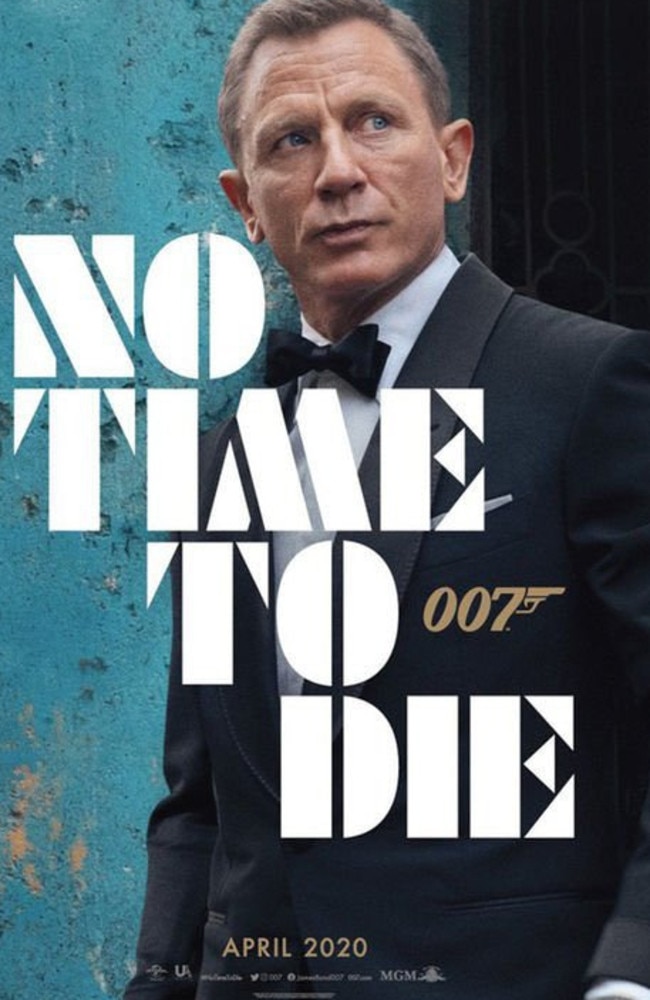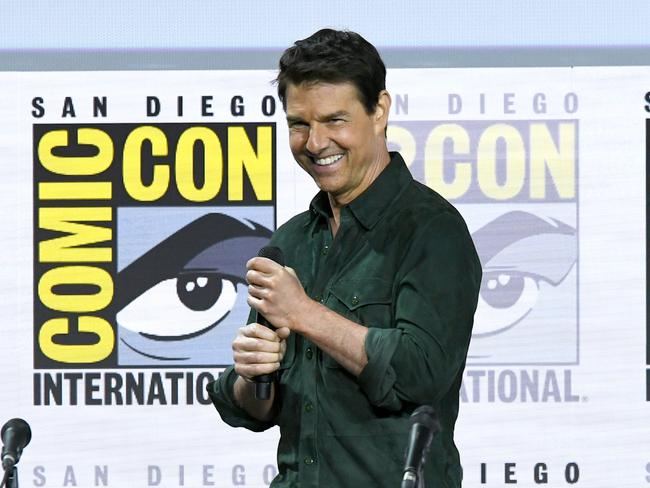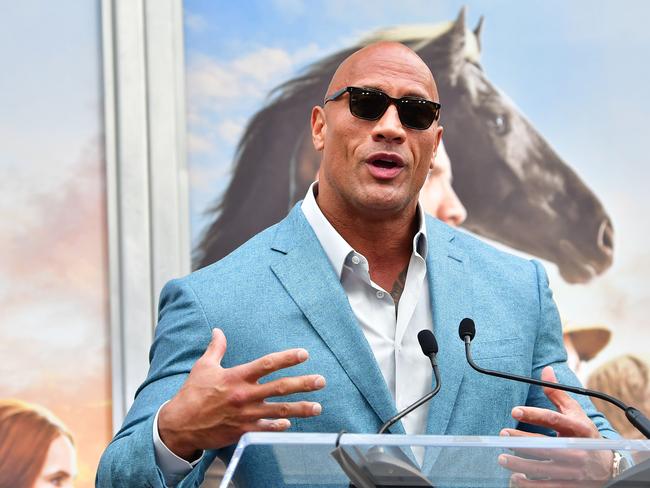Hollywood faces movie crisis as coronavirus delays release of new James Bond film No Time to Die
The delay of Daniel Craig’s new James Bond film stunned the global movie industry. Cinemas have stayed open during World Wars — but coronavirus has changed everything. This is what it means for other big budget films and local cinemas.
Movies
Don't miss out on the headlines from Movies. Followed categories will be added to My News.
- Sophie Monk’s bizarre coronavirus confession
- Bali coronavirus warning: What to do if you’re going on holiday
Coming soon to a cinema near you … a big sign that reads “Closed Until Further Notice”.
Let us all hope as movie fans that it does not come to this.
However, the news earlier this week that the 25th James Bond production No Time To Die was postponing its intended April release until later in the year has left the global movie business shaken, not stirred.
When a blockbuster release of this magnitude makes such a dramatic withdrawal from the marketplace, it usually indicates problems with a movie’s quality.
A surgical suite of re-writes, re-shoots and re-edits are invariably applied, and a re-tooled version comes out later than originally planned, with audiences none the wiser.
This time, however, it is different. Very, very different.
It is no mere ‘problem’ that has prompted the pulling of the long-awaited 25th assignment for 007.
It could well be the greatest crisis the movie business has faced in its 110-year history.
In the past, cinemas have kept going strong during World Wars, dramatic regime change and under threat from competing entertainment options such as the advent of television, the rise of the VCR and DVD players, the gaming boom, and currently, the rapid expansion of home streaming.

However, the insidious worldwide spread of the coronavirus and its instant impact upon audience attendance rates has everybody in the industry fearing the worst.
The rising global panic has forced the major studios to apply some uncharacteristically reluctant financial pragmatism to the situation.
If you do the basic math on a major ‘event picture’ such as No Time To Die, you can quickly understand there was no other choice for its backers but to back off from an April rollout.
Being a Bond movie — with all the flashy trappings famously associated with the franchise — No Time To Die racked up a budget just in excess of $350 million to produce.
To release a production of this scale on the same day right around the world, the marketing and subsidiary costs are staggeringly prohibitive.
By some rules of thumb, as much as another $500 million can be added to the No Time To Die tab.
Therefore No Time To Die has to gross at least a $1 billion at the box-office before it is well and truly into the black.

And that means every major market in the movie business has to be active to deliver the sexiest set of opening weekend figures possible.
Until last month, the Chinese market was the biggest in the world, having relegated the US to second place a few years ago. With China out of the box-office equation for now, that absence blasts a huge hole in the financial projections of every studio.
Perception is everything in Hollywood. A puny set of numbers for the likes of a No Time To Die could not be allowed to happen.
The flow-on effect of the big Bond bail-out may open a floodgate of future ramifications that will change the ways in which movies are made, released and consumed.
In the short term, the focus now switches to other high-profile coming releases with big nine-figure budgets already spent.
The titles that are well and truly under the pump include the next Marvel Studios superhero release Black Widow (currently marked down for a late-April rollout), the new Fast And Furious movie F9 (mid-May), and the massively anticipated sequels Wonder Woman 1984 and Top Gun: Maverick (both expected to dominate the June box-office).

Top Gun: Maverick yesterday got on the front foot, tweeting that it was bringing its release forward by two days to June 24, but in the longer term, should any of these movies cancel their release until the coronavirus coast is clear, then it will be the movie exhibition business that will come under unprecedented pressure.

Especially here in Australia. Our bricks-and-mortar cinemas need a constant supply of big-brand, heavily-hyped movies to stay afloat.
The expected major box-office success of marquee movies such as No Time To Die makes up for all the minor hits, misses and flops that fill out schedules year in, year out.
“The Bond news could not have come at a worse time for us,” a manager of a major metropolitan cinema complex said.

MORE NEWS
Festival cancelled as virus spreads
Coronavirus mega guide: What you need to know
Fifty-five medicines in short supply as coronavirus bites
What you need for a 14-day coronavirus quarantine
“No Time To Die was coming out in the week of the Easter holidays, and had scared off all the competition. We’d been pre-selling tickets for month, and had multiple sessions of the movie going around the clock daily during that period. How do we fill the hole of No Time To Die? I just don’t know.”
An owner-manager of a popular independent cinema was even more blunt in his assessment of the situation.
“I reckon if we lose two or three of these main-event movies in the next few months, more than a few cinemas like ours are going to be toast. The margins are too fine, and the lost revenue is too big.”
If the smaller movie houses could be feeling the pinch, do not assume the major cinema chains will be getting off scot-free if coronavirus containment policies begin to escalate here in Australia.
A majority of Australia’s multiplex cinema sites are attached to shopping centres or precincts with high levels of human traffic.
Already in Europe — where cinema attendances in countries such as Italy and France have plummeted by more than 70 per cent — it has been the big multi-screen locations that have borne the full brunt of the downturn.
Originally published as Hollywood faces movie crisis as coronavirus delays release of new James Bond film No Time to Die


